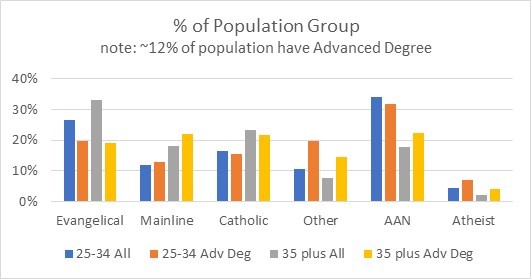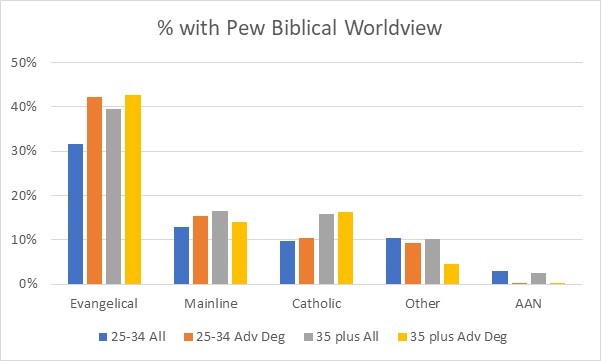The Christian enters the world of entertainment equipped with the knowledge of the clear biblical statements of God’s will. He then applies that knowledge to the decisions he makes in regard to entertainment.
Picture a grocery store in your mind. There are many aisles filled with a variety of products. Fresh fruit, vegetables, canned foods, bread, cereal, meat, dairy products, frozen foods, soap, and numerous other items can be found. When we shop in such a store we need to be aware of certain things. These may include the price, size, weight, variety, brand, quality, and freshness. After analyzing all of this, we are left with the most important part of the shopping trip–the decision! We must decide which of the products we will buy.
Our world is a lot like a grocery store. There are a variety of ideas (worldviews) to be considered. Those ideas can be seen and heard through television, music, movies, magazines, books, billboards, and bumper stickers, and other sources. In a sense, we are shopping in the grocery store of ideas. As Christians, we need to be aware of the products. We need to consider what is being sold. Then we need to decide if we should make a purchase.
Most of us want to be physically healthy. Unfortunately, sometimes we don’t eat as if that were true. The same is true of our minds. We want to be mentally healthy. But too often we don’t “eat” as if that were true! Our minds are often filled with things that are unhealthy. This can be especially true of the entertainment we choose.
How can we become more aware of the products and make the right purchases when we “go shopping” in the world of entertainment? It is our intent to help answer this question.
A Christian is usually encouraged to think of God’s Word, the Bible, as the guide for life. Of course the challenge of such a position is found in practice, not theory. Living by the tenets of Scripture is not always an easy thing. And we can be tempted to think that God’s ideas are restrictive, negative, and life- rejecting. The “don’ts” of biblical teachings can appear to overshadow a more positive, life-affirming perspective.
Does God Intend for Us to Enjoy Life?
Think of a series of three questions. First, if you make the Bible your standard for living, do you think that means life will be dull? Some Christians tend to live as if the answer is “yes.” This certainly applies to entertainment. It appears that we are to be so separate from the world that we can’t enjoy any part of it. Second, if you wrote a song, a poem, a novel, or if you painted a picture, sculpted a statue, etc., do you think you would know best how it should be sung, read, or understood? Of course the answer is “yes.” It came from your mind and imagination. You “brought it to life.” Third, if God created all things and knows everything about you, do you believe He knows how to bring true joy into your life? Again, the answer is obviously “yes.” You came from His mind and imagination. He “brought you to life.” He knows best how you should be sung, read, and understood. And He relays that information through His word, the Bible. He wants you to enjoy life, but with His guidelines in mind.
What is God’s Will for Entertainment?
Just what are those guidelines? What is God’s will for us concerning entertainment?
Before this question is answered, it is important to understand that the Bible clearly teaches God’s will for much of life. Too often we tend to think of pursuing God’s will for reasons that include such things as a particular occupation or marriage partner, and other such important decisions that are not stated clearly in Scripture. But the Bible frequently teaches the will of God for daily living in obvious ways. The following passages demonstrate this:
- A wise man is cautious and turns away from evil, but a fool is arrogant and careless (Prov. 14:16).
- Flee immorality (1 Cor. 6:18a).
- Finally, brethren, whatever is true, whatever is honorable, whatever is right, whatever is pure, whatever is lovely, whatever is of good repute, if there is any excellence and if anything worthy of praise, let your mind dwell on these things (Phil. 4:8).
Obviously various types of contemporary entertainment are not mentioned in these verses. The Bible “does not endeavor to specify rules for the whole of life.”(1) Thus we are challenged to make decisions about entertainment based upon the application of biblical principles. The Christian must know the “principles for conduct: which apply here, which do not, and why. Then he must decide and act. Thus, by this terrifying and responsible process, he matures ethically. There is no other way.”(2) In fact, this process signifies our continual spiritual growth, or sanctification. As Hebrews 5:14 states: “Solid food is for the mature, who because of practice have their senses trained to discern good and evil.” Most of us probably don’t think of “training our senses,” but such a concept surely should be a part of our thinking continually. And the application of such training to entertainment should be clear.
Years ago I had an opportunity to demonstrate the use of “trained senses” when I attended a heavy metal rock concert at the invitation of a sixteen-year-old friend. He was a new Christian then, and we were spending a lot of time together. He had entered his new life after years of attachment to a certain popular rock musician who was the main act of the concert.
During the evening the musicians heavily emphasized the themes of sex, drugs, and violence, and the crowd of adolescents and pre- adolescents was encouraged to respond, and did. After awhile I asked my friend how Jesus would respond to what we heard and saw. His response indicated that for the first time he had begun to think about this form of entertainment–which had been very important to him–with Christian principles in mind.
Perhaps the most succinct statement of Christian ethical principles is found in 1 Corinthians 10:31: “Whether, then, you eat or drink or whatever you do, do all to the glory of God.” Can you think of anything more than “whatever” or “all”? These all-encompassing words are to be applied to all of life, including our entertainment choices. My young friend made this discovery that night.
What Types of Entertainment are Evil?
What types of entertainment are evil? A simple answer to this is, “None!” For example, the rhythm of rock music is not evil; television is not evil; movies are not evil; video games are not evil; novels are not evil, etc.
Of course it is possible for some to claim, for instance, that pre-marital sex is legitimate entertainment. But the clear admonition of Scripture forbids such activity. And the underlying point is that sex is not intrinsically evil. The one who is engaged in such activity is taking what is good and misusing it for evil. So evil does not reside in sex, rock music, television, etc. Types of entertainment are conduits for good or evil. People are evil. People who provide entertainment and people who use it can abuse it. A basic premise of theology is that man has a sin nature. We are prone to abuse all things. As Genesis 8:21 states, The intent of man’s heart is evil from his youth.
What About Content?
So the Christian is free to make entertainment a part of his life with an understanding that evil resides in people, not forms. But caution and discernment must be applied. We must be alert to the importance of our minds and what they can absorb through entertainment.
Perhaps we need to stop doing some of the things we normally do while listening to music, watching television, etc., so we can concentrate on the ideas that are entering our minds. We might be amazed at the ideas we’ll notice if we take the time to concentrate. For example, an old TV commercial says, “Turn it loose! Don’t hold back”! We may want to ask what “it” refers to, and we may want to know what is to be “held back.” Such a commercial is a thinly-veiled espousal of hedonism, an ancient philosophy that says pleasure is the ultimate good. Ideas are powerful, and they have consequences, even when they come from something as seemingly innocuous as a TV commercial.
Consider the following illustration. Think of your mind as a sponge. A sponge absorbs moisture not unlike the way your mind absorbs ideas. (The difference is you are making choices and the sponge is not.) In order to remove the moisture, you must squeeze the sponge. If someone were to do the same with your “sponge brain,” what would come out? Would you be embarrassed if the Lord were to be present? Biblical teaching says He is always present. If we honor Him, we’ll enjoy life in the process.
If we are using our minds and thinking Christianly about entertainment we will be more alert concerning content. All entertainment is making a statement. A worldview, or philosophy of life, is being espoused through what we read, hear, or watch. Movies, for example, can range from the introspective existential comedies of Woody Allen to the euphoric pantheistic conjectures of Shirley MacLaine. We are challenged to respond to such content with our Christian worldview intact.
Are We in a Battle?
We must take care of our minds. A battle is taking place in the marketplace of ideas. Entertainment can be seen as one of the battlefields where ideas are vying for recognition and influence. As 2 Corinthians 10:5 states, “We are destroying speculations and every lofty thing raised up against the knowledge of God, and we are taking every thought captive to the obedience of Christ.” And Colossians 2:8 warns us: “See to it that no one takes you captive through philosophy and empty deception, according to the tradition of men, according to the elementary principles of the world, rather than according to Christ.”
What About the Conscience?
The place of the conscience should also be considered. We must be aware of the possibility of defiling our conscience (1 Cor. 8:7). As Paul wrote in 1 Corinthians 6:12, “All things are lawful for me, but not all things are profitable.” The believer who cannot visit the world without making it his home has no right to visit it at his weak points.(3) It is the responsibility of each of us to be sensitive to what the conscience is telling us when we encounter those weak points and respond in a way that honors God.
Thus I suggest three steps in cultivating sensitivity to our consciences. First, we should consider what our conscience is relating prior to the entertainment. Is there something about what we’ve heard or seen that brings discomfort? If so, it may be a signal to stay away from it. Second, consider the conscience during the entertainment. If we’re already watching and listening, are we mentally and spiritually comfortable? If not, we may need to get away from it. Unfortunately, too often the tendency is to linger too long and in the process we find that what may have disturbed us previously is now taken for granted. Third, consider the conscience after the entertainment. Now that it’s over, what are we thinking and feeling? We should be alert to what the Lord is showing us about what we have just made a part of our lives.
What Do Others Say?
In addition to an awareness of the conscience, we may benefit from what others have to say. Perhaps the advertising will provide information that will prove to be of help before we decide to participate. Frequently ads will tell us things about the content and the intent of the producers. Also, we may find it beneficial to be alert to what friends may say. The things we hear from them may indicate warning signs, especially if they are Christian friends who are attempting to apply biblical principles to their lives. In addition, some objective critics can offer insightful comments. There are ministries around the country, for example, dedicated to analyzing the latest movies. And there are others that attempt to cover a broader spectrum of entertainment from a Christian perspective. You may benefit from subscribing to their publications.
Of course this encouragement to consider what others say cannot exempt us from personal responsibility. To rely completely on others is an unhealthy practice that can lead to mental and spiritual stagnation. Each of us must be mentally and spiritually alert to the content of entertainment.
Isn’t It “Just Entertainment”?
Maybe you’ve heard someone say, “It’s just entertainment”! Is this true?
The principles we have affirmed can lead to several common objections. Our answers to these objections can help us gain additional insight into how we think about contemporary entertainment.
First, some may say that what has been shown in a movie or some other entertainment is “just reality.” But is reality a legitimate guideline for living? Do we derive an “ought” from an “is”? Saying that reality has been portrayed says nothing about the way things ought to be from God’s perspective. Reality needs analysis and it often needs correction.
Second, a common statement is, “I’m just killing time.” The person who says this may be doing exactly that, but what else is being killed in the process? The Christian redeems time; he doesn’t kill it. As Ephesians 5:15-16 states, “Be careful how you walk, not as unwise men, but as wise, making the most of your time, because the days are evil.”
Third, “It won’t affect me” is a common objection. Tragically, these can be the proverbial “famous last words” for some. Ted Bundy, a serial killer who was executed for his crimes, began to look at pornography when he was very young. If you had warned him of the potential consequences of his actions in those early years, he probably would have said it wouldn’t affect him. We can’t predict the outcome of our actions with absolute clarity. In addition, we may not recognize the consequences when they appear because we have been blinded subtly over a period of time.
Fourth, others may say, “There’s nothing else to do.” This is a sad commentary on contemporary life. If that is true, then God has done a poor job of supplying us with imagination. Spending hours watching TV each day, for instance, says a great deal about our priorities and use of our God-given abilities and spiritual gifts.
Fifth, young people in particular tend to say, “Everybody’s doing it.” It is highly doubtful that is true. More importantly, though, we must understand that God’s principles don’t rely on democracy. We may be called to stand alone, as difficult as that may be. Sixth, some may say, “No one will know.” Humanly, this is absurd. The person who says this knows. He’s somebody, and he has to live with himself. And if he is a Christian his worldview informs him that God knows. Is he trying to please God or himself?
Seventh, “It’s just entertainment” can be the response. No, it’s not just entertainment. We can’t afford to approach contemporary entertainment with the word just. There is too much at stake if we care about our minds, our witness, and our future.
So what should we do? Should we become separatists? No, the answer to the challenge of entertainment is not to seclude ourselves in “holy huddles” of legalism and cultural isolation. Should we become consumers? No, not without discernment. As we said in the beginning of this series, when it comes to entertainment, we should be as selective in that “grocery store of ideas” as we are in the food market. Should we become salt and light? Yes! We are to analyze entertainment with a Christian worldview, and we are to “infect” the world of entertainment with that same vision.
Notes
1. Carl F. H. Henry, Christian Personal Ethics (Grand Rapids, Mich.: Baker, 1957), 419.
2. Ibid.
3. Ibid., 428.
Additional Reading
Henry, Carl F. H. Christian Personal Ethics (Chapter 18). Grand Rapids, Mich.: Baker,1957.
Lawhead, Stephen R. Rock of This Age: The Real & Imagined Dangers of Rock Music. Downers Grove, Ill.: InterVarsity, 1987.
___Turn Back the Night: A Christian Response to Popular Culture. Westchester: Crossway, 1985.
Medved, Michael. Hollywood vs. America: Popular Culture and the War on Traditional Values. New York: Harper Collins/Zondervan,
1992.
Myers, Kenneth A. All God’s Children and Blue Suede Shoes: Christians & Popular Culture. Westchester: Crossway, 1989.
Ryken, Leland, ed. The Christian Imagination: Essays on Literature and the Arts. Grand Rapids, Mich.: Baker, 1981.
Schaeffer, Francis A. Art and the Bible. Downers Grove, Ill.: InterVarsity, 1973.
Schultze, Quentin J., et al. Dancing in the Dark: Youth, Popular Culture, and the Electronic Media. Grand Rapids, Mich.: Eerdmans, 1991.
Schultze, Quentin J. Redeeming Television. Downers Grove, Ill.: InterVarsity, 1992.
©1994 Probe Ministries
 First let’s look at their self-proclaimed religious affiliation as shown in the figure below. The color key shows age range and cohort (i.e., representing all survey takers or only ones with advanced degrees or “Adv Deg”).
First let’s look at their self-proclaimed religious affiliation as shown in the figure below. The color key shows age range and cohort (i.e., representing all survey takers or only ones with advanced degrees or “Adv Deg”). What about their religious beliefs? These are compared in the figure shown here.
What about their religious beliefs? These are compared in the figure shown here. It turns out that the group of pastors in Fort Portal was especially passionate about the apologetics material Pat and I covered during the six hours each day. They were experiencing a direct challenge from Islam and had little information with which to respond. Many of them felt the burden to defend their faith from the rising influx of money and mosques from Libya. Libya’s ruler Muammar Kaddafi has taken an interest in Uganda. In Fort Portal he has built a large, gold-domed mosque and a mansion for the local fifteen-year-old tribal king. Local Muslims have been targeting pastors and their sons by offering money and even cars to those who would convert to Islam. Sadly, some have done so.
It turns out that the group of pastors in Fort Portal was especially passionate about the apologetics material Pat and I covered during the six hours each day. They were experiencing a direct challenge from Islam and had little information with which to respond. Many of them felt the burden to defend their faith from the rising influx of money and mosques from Libya. Libya’s ruler Muammar Kaddafi has taken an interest in Uganda. In Fort Portal he has built a large, gold-domed mosque and a mansion for the local fifteen-year-old tribal king. Local Muslims have been targeting pastors and their sons by offering money and even cars to those who would convert to Islam. Sadly, some have done so. With that, they began celebrating by raising their new Bibles above their heads, dancing and singing a song titled, “Heaven and earth will pass away but God’s Word will endure forever.” It was a very moving for us to see the joy in their hearts because of our teaching.
With that, they began celebrating by raising their new Bibles above their heads, dancing and singing a song titled, “Heaven and earth will pass away but God’s Word will endure forever.” It was a very moving for us to see the joy in their hearts because of our teaching.